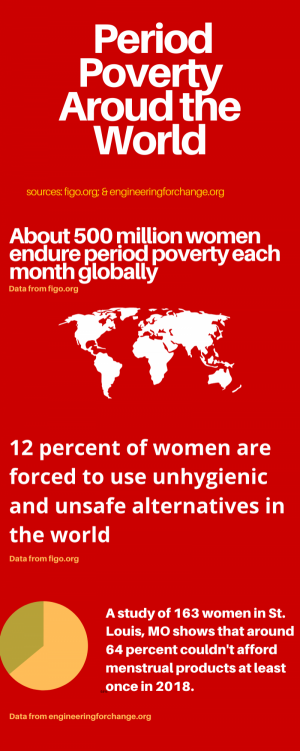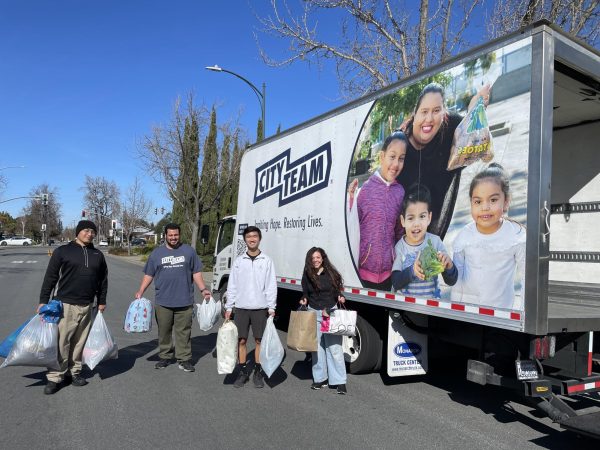Eliminated menstrual product tax, implemented lactation rooms among new CA laws
Measures allow for female friendly initiatives
Gov. Gavin Newsom introduced new legislation at the start of 2020, part of it eliminating the tax on feminine hygiene products and requiring sanitary lactation rooms in all workspaces, according to California Legislative Information.
In the U.S., approximately 20 percent of girls have missed school because they didn’t have access to menstrual products as a result of the cost, according to Global Citizen.

High costs of feminine hygiene products leads to disadvantages for impoverished women around the world.
According to the Los Angeles Times, Newsom’s motive for the tax elimination is to support California women and families.
President of the Women’s Empowerment Ambassadors club (WEA), senior Carolyn Shan said in a phone interview she is excited the tax code has become more gender friendly.
“[Feminine hygiene products are] really expensive,” Shan said. “Especially because they’re a necessity, and it’s something I can’t avoid buying.”
Vice president of WEA, senior Fabiola Zamora also said, since feminine hygiene products are needed every month, the taxes pile up and add to the existing price.
Shan said this law will bring students at HHS closer together.
“We cultivate a more compassionate community because I feel more inclined to give these products to our girlfriends or other girls that we don’t know as well because they’re not as expensive and not as much as a burden to us,” Shan said.
Another challenge women face is balancing their work schedule and the time they need to breastfeed.
Recently, California passed a law that requires employers with more than 50 employees to implement a sanitary lactation room or location to nursing mothers. According to California Legislative Information, it must have adequate space for supplies and provide necessary privacy.
Breastfeeding is the most nutritional source for infants, according to the National Center for Biotechnology Information (NCBI). However, biology and AP environmental science teacher Jessica Wakefield said it’s hard to find a time and place to breastfeed or pump while working.
“I have friends who stopped pumping when they went back to work because it was just such a hassle that they didn’t have somewhere to do it,” Wakefield said. “They didn’t have somewhere to wash their parts or store their milk.”
However, Wakefield said this law makes it easier to have a baby and come back to work, since it minimizes the complications.
“It was a struggle initially trying to figure out how pumping was going to work,” Wakefield said. “But I will say that HHS has been super supportive in giving me the schedule that I requested to be able to pump when I need to.”
Zamora said although these laws are more accepting toward women’s necessities, there still remains a myriad of boundaries women face.
“I think it’s a great indicator that things are going [in] the right direction,” Zamora said. “But it’s not enough.”
Madhavi is currently a senior and is looking forward to another great year with the paper as one of the Editors-in-Chief! Aside from...












